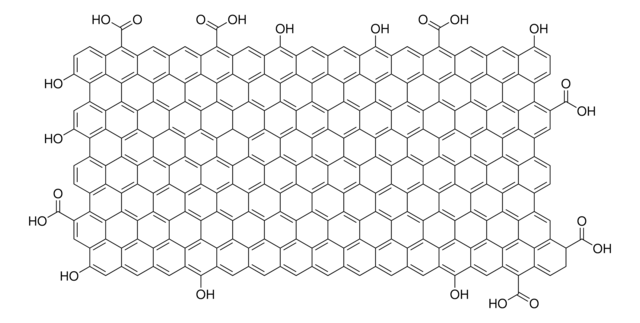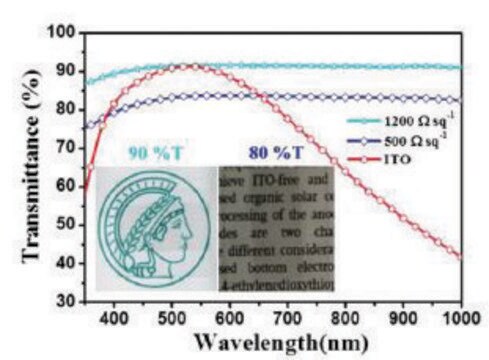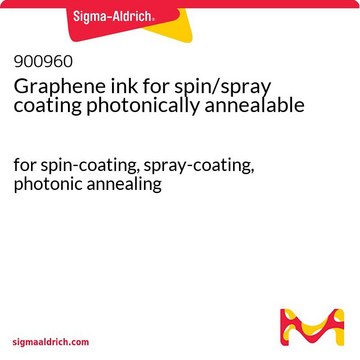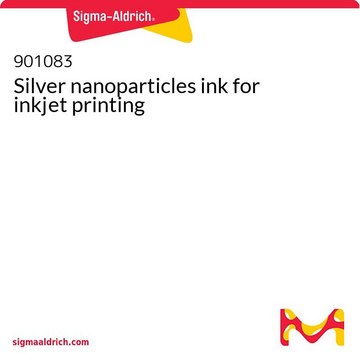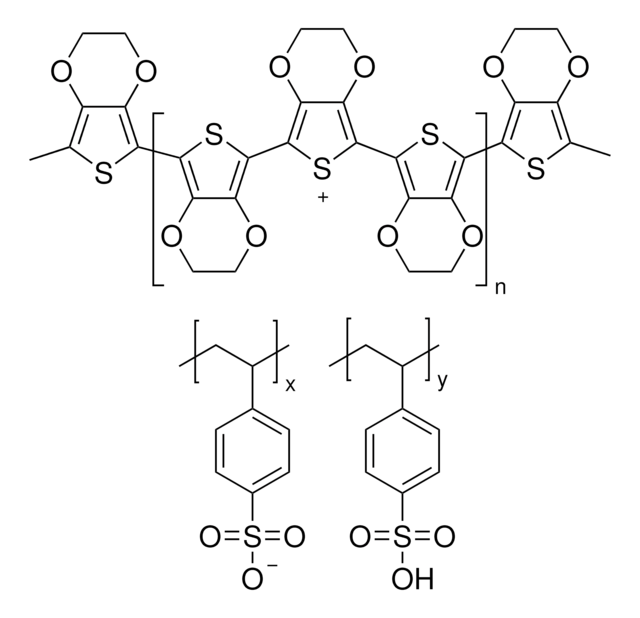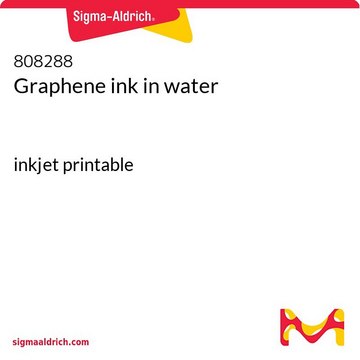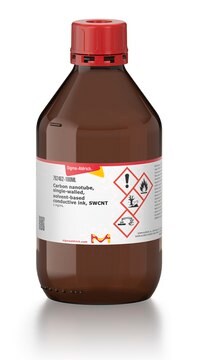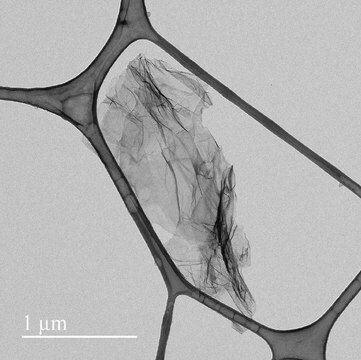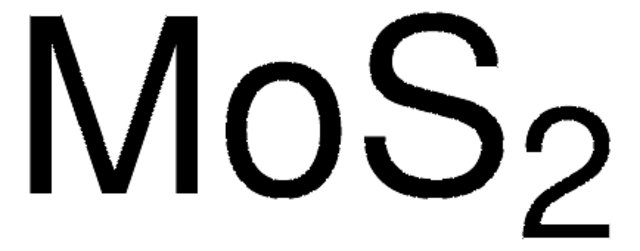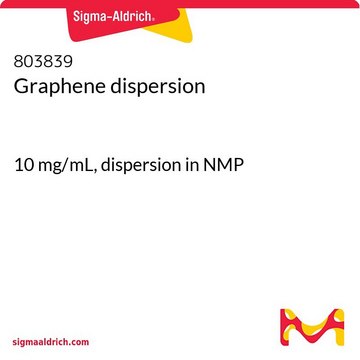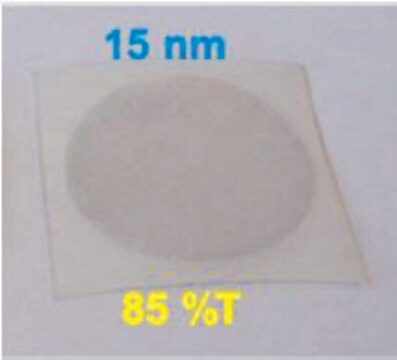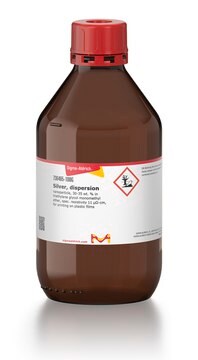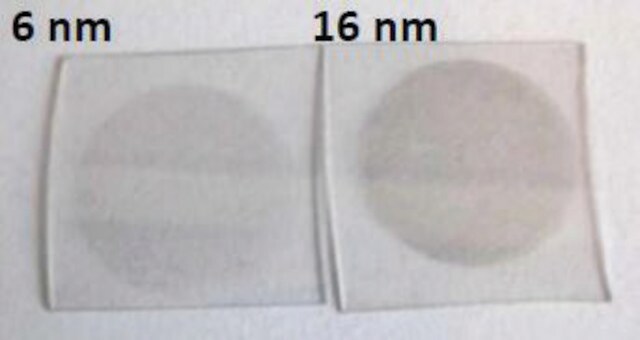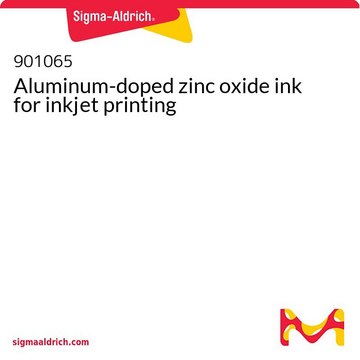793663
Graphene dispersion
forinkjet printing, with ethyl cellulose in cyclohexanone and terpineol, inkjetprintable
Synonym(s):
inkjetting ink, conductive ink
About This Item
Recommended Products
Product Name
Graphene ink, for inkjet printing, with ethyl cellulose in cyclohexanone and terpineol, inkjet printable
Quality Level
form
liquid
greener alternative product characteristics
Design for Energy Efficiency
Learn more about the Principles of Green Chemistry.
sustainability
Greener Alternative Product
concentration
2.4 wt. % (solid (graphene and ethyl cellulose) in cyclohexanone/terpineol)
resistivity
0.003-0.008 Ω-cm (thermally annealed 250°C for 30 minutes, film thickness >100 nm)
particle size
≤3 μm
surface tension
30 dyn/cm
viscosity
8-15 mPa.s(30 °C)
bp
213-218 °C (Terpineol)
density
0.9375 g/mL at 25 °C
greener alternative category
SMILES string
OC(C1=C2C(C3=C(C4=C(C5=C(C6=C(C7=C(C8=C(C9=C(C%10=C(C%11=C(C%12=C(C%13=C(C%14=C(C%15=CC=C%16O)C%16=C%17)C%17=C%18)C%18=C%19C(O)=O)C%19=C%20)C%20=C%21O)C%21=C%22)C%22=C%23)C%23=C%24O)C%24=C%25)C%25=C%26C(O)=O)C%26=C%27)C%27=C2)=C%28C%29=C(C%30=C%31C%28=C%3
Looking for similar products? Visit Product Comparison Guide
General description
Application
Curing Condition: 250-350°C, 20-30min
This ink was tested on polyimide and silicon dioxide substrates.
Other Notes
Legal Information
Signal Word
Danger
Hazard Statements
Precautionary Statements
Hazard Classifications
Acute Tox. 4 Dermal - Acute Tox. 4 Inhalation - Acute Tox. 4 Oral - Eye Dam. 1 - Skin Irrit. 2 - STOT SE 3
Target Organs
Respiratory system
Storage Class Code
10 - Combustible liquids
WGK
WGK 2
Flash Point(F)
143.6 °F
Flash Point(C)
62 °C
Choose from one of the most recent versions:
Already Own This Product?
Find documentation for the products that you have recently purchased in the Document Library.
Customers Also Viewed
Articles
The emerging field of printed electronics requires a suite of functional materials for applications including flexible and large-area displays, radio frequency identification tags, portable energy harvesting and storage, biomedical and environmental sensor arrays,5,6 and logic circuits.
Graphene is a unique two-dimensional (2D) structure of monolayer carbon atoms packed into a dense honeycomb crystal that has attracted great interest due to its diverse and fascinating properties.
Professor Gogotsi and Dr. Shuck introduce MXenes: a promising family of two-dimensional materials with a unique combination of high conductivity, hydrophilicity, and extensive tunability.
Since its discovery little more than a decade ago,1 the two-dimensional (2D) allotrope of carbon—graphene—has been the subject of intense multidisciplinary research efforts.
Our team of scientists has experience in all areas of research including Life Science, Material Science, Chemical Synthesis, Chromatography, Analytical and many others.
Contact Technical Service